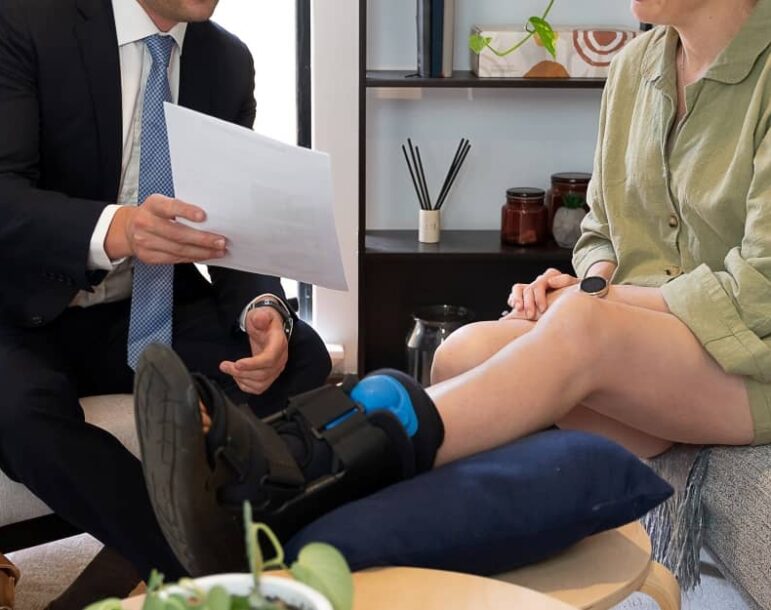A crime victim’s pain and suffering do not end when the criminal act ends. The physical, financial, and emotional impacts can last for years or even decades, depending on the nature of the crime.
Various injuries can take a great deal of time to heal, and some physical injuries may never recover.
It is common for crime victims to have emotional distress in the form of PTSD, overwhelming anxiety, depression, or suicidal thoughts and actions. Often these are so debilitating that the crime victim cannot work or enjoy the life they had before the incident.
Time away from work or the inability to perform the task they once had can deplete financial resources. This is especially true if long-term therapy is necessary.
While compensation to victims to help with recovery can never put someone’s life back to how it was before the crime, many Australian jurisdictions make crime compensation available. It is frequently in a victim’s best interest to seek reparations.
Section 1: What is Crime Compensation?
In Western Australia, crime compensation is available to those injured due to a crime or a spouse or close relative of a victim killed during the crime. The compensation is assured by Criminal Injuries Compensation Act 2003.
While the amount of compensation you are eligible for varies based on several factors, the compensation’s purpose is to make sure the crime victim has the resources necessary to return to as normal a life as possible after being injured during a crime.
Crime victims awarded reparations may receive money to cover medical and counselling bills, lost wages, pain and suffering, the loss of enjoyment of life, and incidental expenses related to care received after the crime, such as travel costs to get care for injuries. Getting funds to help pay for in-home child care or housekeeping services is possible.
Section 2: Who is Eligible for Crime Compensation?
As the victim of crime, you are likely to be eligible to receive crime compensation if you suffer from one or more of the following:
- Physical injuries
- Psychological injuries
- Nervous shock
- Pregnancy
To claim compensation, you must file a police report and cooperate with the investigation. It is important to remember that you can claim compensation even if the offender is NOT identified, charged, or convicted of the offence.
There are also circumstances where compensation will not be awarded, including:
- If the person charged with the crime is acquitted at their trial
- If you failed to assist police with the investigation of the crime
- If you took part in criminal activity when you sustained injuries
Typically, the details of eligibility for victims’ compensation will vary among Australian states and territories.
Section 3: How to Apply for Crime Compensation?
Walk readers through the process of applying for crime compensation, from gathering documentation to applying.
The process of applying to get compensation requires several steps. The initial step begins before you make an application for compensation. You need to gather together all relevant documents for your application. These include:
- Witness statements
- Police reports
- Medical records
- Records from first responders
- Reports from hospitals, doctors, therapists, and psychologists
- Photographs of injuries or damage
- Support letters
You must remember that many of these records take time to process, so you may need to wait. Not all reports are free, and you can expect to pay up to several hundred dollars, depending on the complexity. However, these documents are essential for your case, and you may be able to recoup the costs if the court orders restitution.
Once you have your documents, you can move forward with your application for compensation.
You will need to send the application for compensation, your statement, and relevant information and evidence to the Office of Criminal Injuries Compensation for assessment. You will not pay an application fee.
It is essential to remember:
- You have three years from the date the crime occurred to file for victim compensation.
- Your application and statements must be filled out completely
- You can ask for assistance if your statement brings you mental anguish
- The biggest mistake you can make is not attempting to receive the recompense that you deserve
Section 4: What to Expect After Applying?
After you file your application, it will be reviewed by an assessor. There is no set timeline for receiving a decision regarding your application. Each case is unique, and the assessor may require more information from various professionals and organisations. Generally, it is not unusual for a decision to come between six to 12 months after applying.
If you disagree with the decision on your application, you have the right to appeal with the District Court of Western Australia. Please note you have just 21 days to lodge your appeal. It is strongly suggested that you obtain legal counsel for an appeal.
Conclusion
If you are a crime victim who has been injured, it is essential to remember that you do not need to suffer silently and struggle to get through another day. Resources are available to compensate for physical, emotional, and financial suffering. For more information for other states, check out My Legal Crunch Lawyers.
Avoid feeling as if you are undeserving of damage. You were unjustly victimised. While the payment of damages will not put your life back in order like it was before the incident, you deserve your bills paid, your job intact, and all injuries attended to so you can recover.


